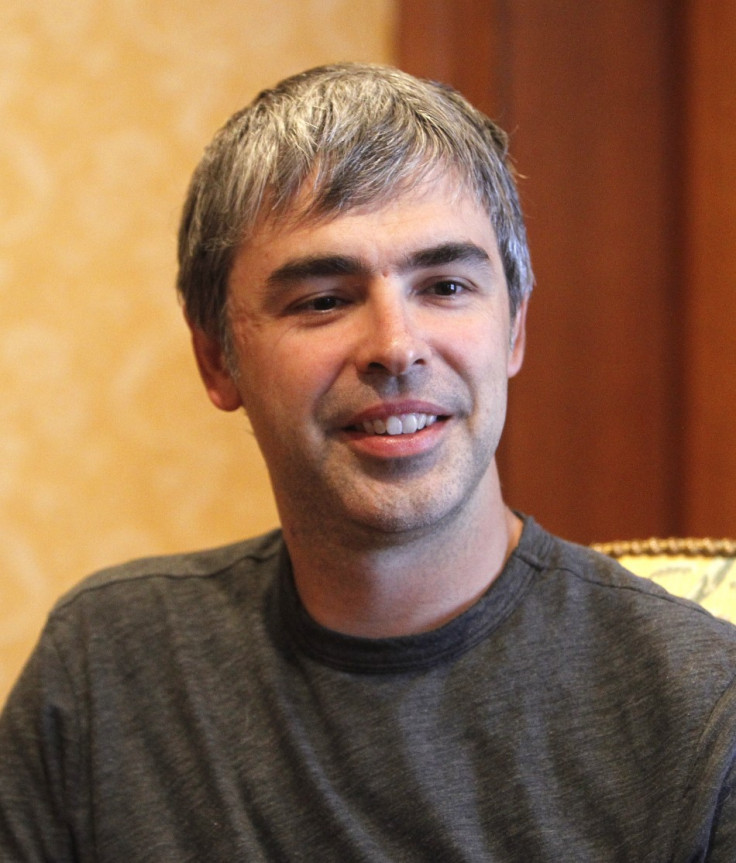Larry Page Claims Apple's Feud with Android was 'for Show'

In an interview with Bloomberg Businessweek's Brad Stone, Google co-founder and Chief Executive Larry Page opened up a fair bit - discussing everything from Android smartphones to tablets and from plans for the future to social networking sites and more. Page has now completed a year in charge of Google, after Eric Schmidt stepped down.
The 39 year old says he is still passionate about the technology he develops.
"What we see, having these amazing devices in your pocket. Every time I get a new one, it's like a kid on Christmas. I mean, it's just totally—my life has changed. It's kind of like the experience of first using the Internet or using a computer as you get these new phones," he enthused.
The computer scientist sees more scope for expanding Google - from being much more than a simple Internet search company to adding on Web-based services like the Chrome web browser and the social network Web site Google+.
"I think what we're about is we're about using large-scale kind of technology — technology advancements to help people, to make people's lives better, to make community better," Page told Bloomberg, "Obviously, our mission was organizing the world's information and making it universally accessible and useful, and I think we probably missed more of the people part of that than we should have."
When asked if there was any Android tablet he was happy with, Page replied he really liked using his Samsung tablet.
"I previously used the Motorola Xoom for a while and liked that. I think that those are great experiences, but they're going to get a lot better. I think that we're at the pretty early stages of this," he explained.
One of the more important parts of the talk were Page's claims the former late founder of Apple Inc., Steve Jobs, and he were on friendly terms on a personal front and the arguments between Google and Apple, over the Android OS, were over-hyped.
"I think the Android differences were actually for show," he added, "I think that served their interests. For a lot of companies, it's useful for them to feel like they have an obvious competitor and to rally around that. I personally believe that it's better to shoot higher. You don't want to be looking at your competitors. You want to be looking at what's possible and how to make the world better."
To read more, visit Bloomberg Businessweek
© Copyright IBTimes 2025. All rights reserved.





















